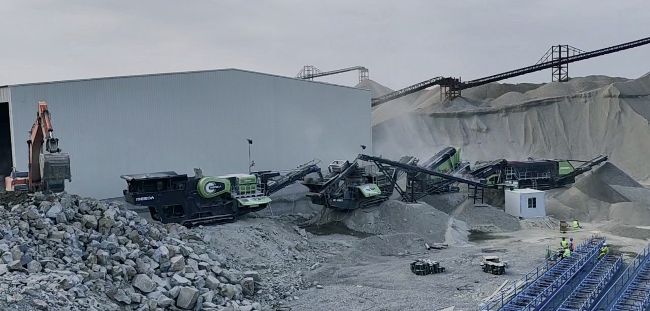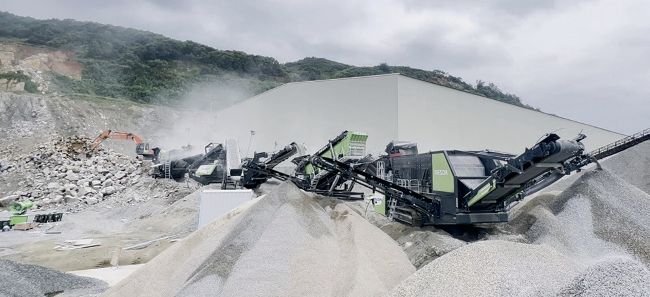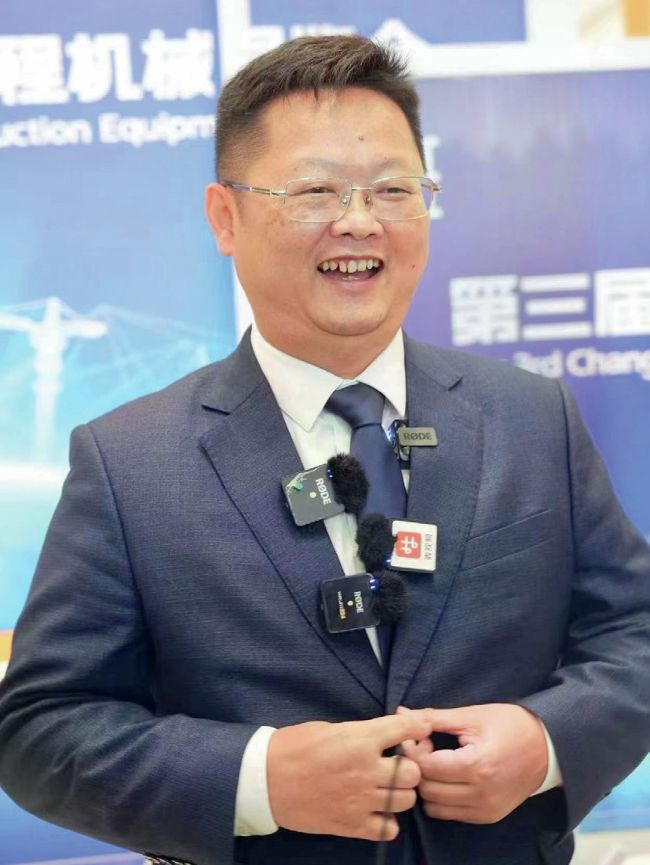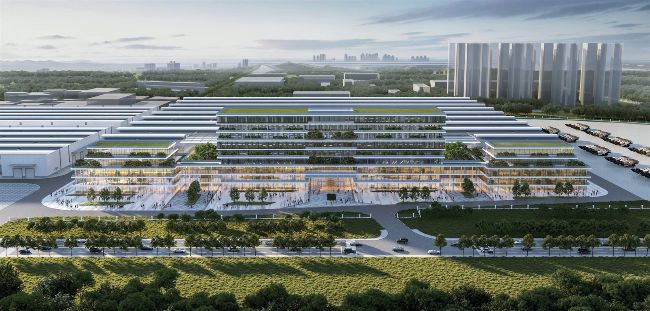CRUSHING AND SCREENING
Collaboration is the future
D&Ri speaks with Peter Huang, Chairman and CEO of MESDA Group about the growth of the country’s crushing and screening equipment market
For many years, manufacturers in Europe have dominated the crushing and screening equipment market, with Ireland, the United Kingdom, Sweden, Norway and Germany among the biggest producers of machinery for construction and demolition waste handling.
However, with sustainability increasing the demand for crushers and screens, equipment manufacturers in other parts of the world, particularly China, are quickly ramping up the production of crushers and screens.
One such company is crushing and screening specialist Mesda. Established as Guangxi Mesda in Nanning, South China in 2009, Mesda has grown to become a leader in integrated R&D, design, sales and services.
The company, which was incorporated as Mesda Group in 2020 and is reported to have a 50% share of the Chinese crushing and screening market, currently operates four manufacturing facilities that together have an annual capacity of 2,000 units.
Its products, which also include, conveyors, excavators, drill rigs and loaders, are widely used in mining, tailing treatment, aggregates, solid waste treatment and recycling.
In an exclusive Q&A with D&Ri, Peter Huang, Chairman and CEO of Mesda, gives insight into the Chinese crushing and screening market, power technology and its future growth plans.
How would you describe the level of competition among crushing and screening OEMs at the moment?
In recent years China has seen many newcomers enter the market. These include big names like Sany and XCMG, and smaller manufacturers that produce attachments such as hydraulic breakers. They are all
rushing in.

Mesda has been a leader in the crushing and screening sector for years, and currently has a 50% share of its domestic market.
I think this is just the start, especially for small manufacturers who are not quite yet experts in the industry.
Do you think that these smaller manufacturers will disappear?
Gradually, I think most will. But you know, in China, small companies like these often find a way to survive, so some may manage to establish themselves.
With the global push towards achieving Net Zero, are you noticing any specific equipment trends?
In China, both the mining and engineering sectors are already starting to use renewable energy technology - in particular, rechargeable battery technology.
We’ve already done our research and development for this type of crushing and screening equipment and our first prototype machine will be launched later this year.
Our new rechargeable battery power solution can help protect the environment, because the machine can be working during the day and recharged at night.

CREDIT: MESDA

Peter Huang, Chairman and CEO at Mesda
CREDIT: MESDA
We believe that this type of product will be the future in the European and world markets, because a battery powered machine can save a lot of money for the user.
According to our research, one mid-sized wheeled loader for example, over the course of a year, could save users around €45,000 (US$50,000).
Additionally, we are trying to simplify the structure of the machinery so that it is easier to maintain and use. With the new battery power solutions, the machinery can be diversified in terms of size.
This means that buyers can save a lot of money on international freight shipping, by investing in smaller – mini and mid-sized, crushers and screens that offer high levels of productivity.
How do you see the development of battery technology evolving in the near future?
China is already at a very advanced stage of development in the area of battery technology and control systems for automobiles, and the next stage will be construction equipment.
The government is already incentivising the development and use of a standard rechargeable battery that can be used in both automobiles and construction machines.
And we at Mesda are already prepared to develop our machine for this new type of power solution.
Have you been affected by the new tariffs introduced by the US? And do you see a way forward?
Not directly, but we notice that this is a big challenge. For us, I should say that the US market is not our target market this year.
But of course, we pay attention to this kind of relationship because this type of situation will impact our international market development.
As a company, we would like to enter the international market, and so we have to be prepared to find new ways of working with US companies.
Yes, the relationship between our two countries is challenging, but we will show our strength by being prepared to find a way we can with others to overcome the tariff challenge.
If we can see a way forward, we will be open to developing it.
What sectors and regional markets do you see key growth areas?
We are primarily involved in three construction sectors. One is infrastructure, the second is mining and the third is the recycling sector.
We have been very strong in infrastructure and recycling, and while we are involved in mining, we are not as strong in that area.
So, mining is an area that we will focus on, but we will also continue to develop our recycling sector equipment.
In China, the demolition and re-construction of old city areas is the number one area of growth in the industry. We have been very strong on this in recent years, and it is still an area in which we will continue to concentrate.
In terms of regional growth, Southeast Asia is important for us. Vietnam, Thailand and Indonesia in particular, because the market is very big.
Also, for these countries, if they want a machine – which at the moment are mostly coming from Europe, getting that machine into the country is costing around US$140,000 in shipping alone. Never mind the cost of actually buying the machine. So, there is opportunity there.
The future of crushing and screening
“Next year we will start to build the Mesda Industrial Park”, says Peter Huang, Chairman and CEO of Mesda.
“With the Government’s support, we have been able to acquire a large area of land for the construction of a large facility and in the future – very soon – we will welcome all the European companies to join this park, which will be a place of shared learning that will support all of us.
“As a Chinese company, Mesda is now working on developing our production facility and on improving our productivity, and we want to do this with our co-operation partners, and even our competitors.
“By collaborating in research, development, design and manufacturing, for the purpose of supplying machines and new technologies to our shared customers, we can benefit all customers and the entire industry.”

A design image for the Mesda Industrial Park
CREDIT: MESDA
Similarly, the markets in the Middle East and South America also offer us opportunities to develop our business.
What are the challenges of entering emerging markets such as these?
That is a very important question – for all Chinese companies who would like to go to an international market.
For this, we need to make sure that we have a clear strategy for growing our business, and we must also consider the current level of development of the target market.
The emerging markets in Southeast Asia are very price sensitive.
Also the customers do not need equipment that incorporates the high-level technologies that some other regions may require.
Instead they need machinery that can do the fundamental material handling work. So, this is a big target market for us.
Similarly, for South America and the Middle East – where there is more demand being driven Net Zero, the key challenge is in the establishing of a local dealer network that can supply and offer proper service support to our customers.
For more developed markets like Europe and the US; in these markets our focus is different.
These markets allow us to further improve and develop our technology and the quality of our products.
This enables us to be more competitive in the future and allows us to develop and supply the different machines and services that satisfy different market requirements. ■